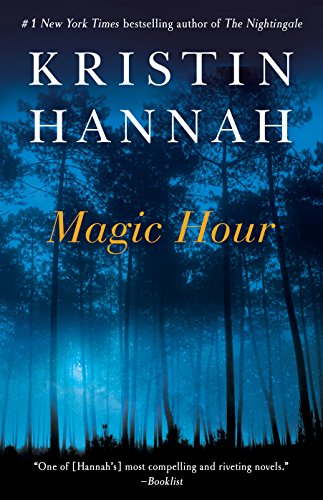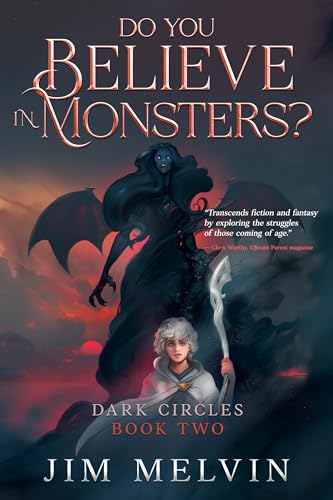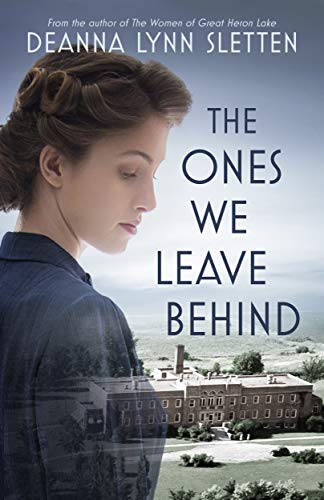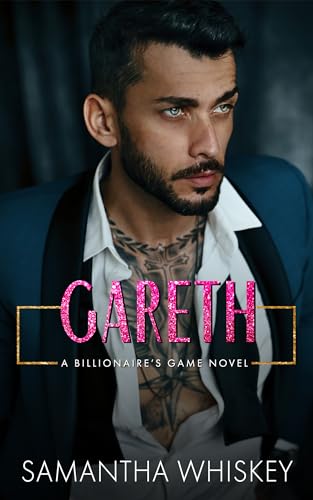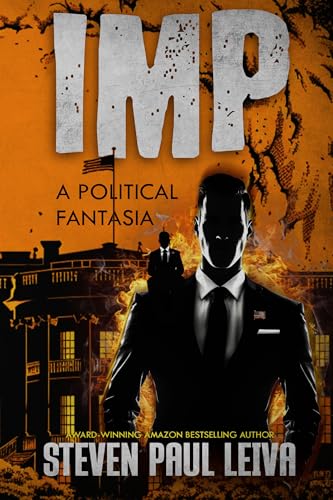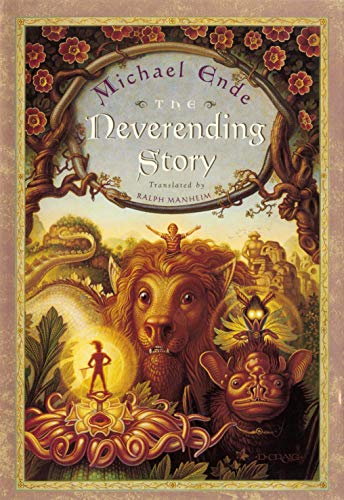Copyright © 2011 by Scott Nicholson and published here with his permission
CHAPTER ONE
The rain fell like dead bullets.
David Dunn blinked against the drops. Darkness slathered both sides of his eyelids and the air smelled of burnt motor oil. The silvery salvo of precipitation swept over the expanse of a lighted billboard.
“Need a lawyer?” read the emblazoned pitch, followed by an alphabet soup of advertising copy that swam in David’s vision. The sign was upside down.
No.
He was flat on his back, looking up, his clothes soaked. He couldn’t lift his head. The rain beat tiny tattoos on his face, pooling and racing down in tracks as warm as blood. The surface beneath him was hard and cold. He let his head tilt toward the right and he saw a cluster of distant lights.
Buildings. A town.
But which town?
And, the bigger question, who was he this time?
He tested his fingers. None were broken, though the knuckles were sore. Maybe he’d been in a fight. Or mugged and left to leak fluids onto the pavement.
Dunn. David Dunn.
That was his name. The one he’d been born with, not the name they’d given him. Whoever “they” were.
He focused on the billboard. It featured a bland, stern face. No doubt the attorney of record, one desperate to cash in on the misfortunes of others.
Injured in a car crash? Worker compensation claims? Product liability lawsuit? The bottom of the ad heralded a toll-free number.
David wondered if he owned a cell phone. He usually didn’t, but sometimes they gave him one, slipped it into his jacket pocket with prepaid minutes.
Prepaid minutes. That was a laugh. “Pay as you go” was the name of this game.
The rain must have pounded him for a while, because he lay in a puddle. And it was summer because he wasn’t shivering. A car horn blared, probably 50 feet away, and tires spat white noise across the wet asphalt.
They were coming for him again. They were always coming for him. Or else they already had him.
He moved his lips, mouthing the words “Need a lawyer?”
The car hissed onward, weaving in the gloom, its twin taillights like the eyes of a retreating dragon.
With a groan, he rolled onto his side, cheek chafing against crumbled tar. He wore no hat. A wristwatch adorned his left wrist and he snaked his arm near his face. The LED numerals flickered red.
11:37. Nearly noon or nearly midnight, it was all the same.
Unless it was time for the next dose.
The rain spattered and drummed around him in staccato fusillade. Constant war, the Earth versus the sky. Us versus them. David Dunn against himself.
A nudge to his back.
He didn’t have the strength to fight them this time. No running left in those freighted legs. No direction safe. All avenues took him back to the Research Triangle Park in the heart of North Carolina.
Home-the place of no escape.
He closed his eyes and flopped to one side, hoping they would make it quick this time.
“Home, home on the range,” he sang.
The nudge again, this time to his shoulder. “Hey, get up.”
Swim, swim, swim. His head went nowhere. He tried to smile, his last act of will, his final defiance. But his lips were the cold, limp corpses of twin snakes.
“Are you okay?”
A woman. But which one?
“I think I need a lawyer,” he said, though he wasn’t sure his mouth moved.
Hands explored him, angled his head from side to side. The fingers were strong and sure.
“Can you move your arms and legs?” the woman said.
He nodded, or at least dipped his chin.
“We have to get out of here.”
Here. Out. She must be new to the program. There was no “out” and everywhere was here. The universe was their lab, the world their maze, and the cheese was the disease.
The cheese was the disease. Probably a nursery rhyme in there somewhere, a modern retelling of “Hickory Dickory Dock.” Maybe he had a new song.
David licked his lips and they tasted of chemicals. Rain in the city got scarier every day. Why did they even bother with the program anymore?
Civilization would accomplish the mission, given time. But time was money and money was energy and energy was power. Maze opening onto maze, forever and ever, amen.
She tugged at the collar of his jacket, sopping his head into the puddle like a biscuit into weak gravy. “Sit up, David.”
She knew his name. They were getting smarter, all right. Changing the flavor of the cheese. He dared not open his eyes, but he couldn’t resist.
He could never resist.
He blinked and squinted through the jewels of water on his eyelashes. Her face was a fuzzy pale moon and her naked body was glistening. He blinked again. Squinted. Focused. Which one would it be?
Her. Who else?
He clawed at the concrete, digging to bury himself alive in the wet, filthy soil of the city. Back to the nothingness of the womb. A tomb of cool, welcoming clay, not of hot, harboring flesh.
He had rolled and scrabbled about five feet across the abrasive surface when she called again. “David.”
The word was an echo of childhood scolding. He wanted to cover his ears, but that would slow his crawling escape. The buildings slid into focus now, the lawyer gazing down from the billboard with poisonous solicitude.
Against the foggy sheen of silver-gray that lay across the night air, the windows of a waffle house projected a beacon of cigarette smoke, cholesterol, and safety in numbers. His soaked jacket pressed against his back, water streaming from his hair. It was long, past his collar, in a style and length he hadn’t worn in years. Not since college, which was the last stretch of his life he clearly recalled.
He crawled toward the smell of fryer oil and coffee. A bare foot appeared beneath his chin, the burgundy nail polish chipped, a raw scar along the arch.
“David, it’s me.”
Craning the cinder-block weight of his head, his gaze went up the plump calf and higher. Did he know that skin? Or was all skin a stranger, even the skin he now wore as David Dunn?
“You don’t remember me, do you?” The words fell from above, as brittle and bracing as the rain.
Of course he remembered her. His eyes traveled higher, to the dark patch of hair between her legs, then up to her belly where the blood ran in a thick rivulet.
He couldn’t bear to see her face, which was haunted by the ghost of all abandoned fears. Traffic hissed in the distance, like rows of long reptiles entwining in venomous ecstasy.
He raised himself to his knees, head spinning, distant buildings the ancient cliffs of an alien planet.
Waffle house. Its squares of smeared yellow light promised some sort of security. Normality. Greasy reality. But first he had to get past her.
“They’re coming for us.” She reached her hand toward him, fingers pale and slick as maggots.
His stomach lurched. Dry, acidic air rushed up and abraded his throat. He had nothing to vomit. The hand touched his shoulder, and David found himself reaching up to her, surrendering. His arm was like a roll of sodden newspapers.
They’ll get you anyway. They always get you.
Or maybe they had you from the start.
She helped him to his feet and he swayed, blinking against the rain. Car headlights swept over them. Two giant shadows loomed on the brick wall at his back.
Eyes everywhere.
He jerked free of the woman’s grasp and ran blindly away from the swollen and indistinct shapes. His legs were damp ropes but still he fled.
Rubber squealed on pavement, the shriek of a hungry leopard. Car doors opened, rain ticked off the metal roof, and the engine mewled.
“David!” the woman screamed.
They had her, but David didn’t care. That was exactly what they would expect: for him to play hero again.
He hadn’t saved her last time, and Susan was going to die again, but it wasn’t his fault.
He plunged toward the dark, wet wedge between buildings, willing his legs forward. His heart knocked mallets against his temples. Sharp-toothed things would be waiting in the darkness, but they would be the lesser of two thousand evils.
A kinder, gentler evisceration, because those monsters would do it from the outside in.
Not from the inside out, like the people from the car would.
Her shriek rose against the oppressive sky and shoe soles spanked the asphalt.
“Stop!” someone shouted. Were they really dumb enough to think he’d obey them at this point? After all they’d done to him, all they had taught him?
After what they had made him become?
He ran into the alley, assaulted by the odors of rot, bum piss, and motor oil. A chain-link fence, ripped and curling away from its support posts, blocked his escape.
David clutched the links, praying for the strength to climb. He dug the tip of one shoe into the fence and launched himself up. He slipped and hung like a crucifixion victim for three seconds, time for one deep breath before collapsing.
He lay with his face against the fence, the links imprinting blue geometry against his cheek. He listened, waiting.
Rain, tick tick tick.
No footsteps, no shouts. No car engine.
They had taken her. And spared him.
No. That’s just what they wanted him to think. That he was safe, so the next game would be even more disturbing.
Or maybe they wanted him to cower, to doubt, to face his monsters alone.
With them, you could never be sure.
Fear was their tool and his drug.
He whimpered for his next pill and the blissful fog of amnesia.
This was who he was.
Whoever he was.
He kissed the rain and it kissed back.
CHAPTER TWO
Dr. Sebastian Briggs turned away from the monitor, content that David Dunn was sufficiently broken for the moment. The Subject would be ready for his next dose of Halcyon shortly.
The Subject let out a tired wail from behind the metal door in the back of the factory.
“Home on the range,” Briggs whispered.
David was the good soldier, the one who had offered himself for the chronic, ongoing experiment, whether he knew it or not. The other subjects had finished-or at least survived-the clinical trials, unaware of their contribution to science, their crime forgotten.
But Briggs hadn’t forgotten. Roland Doyle, Anita Molkesky, Wendy Leng, and Alexis Morgan had gone on to regular lives. Briggs hadn’t let them escape completely, though, because the world was merely a larger Monkey House and the experiment had never ended, because they carried it inside them.
He’d watched them and tracked them. Wendy, especially.
Susan hadn’t been his fault, although he’d been stuck with the blame. It had taken a decade for him to restore his reputation, but luckily his backers were less interested in publishing in peer journals and more interested in tangible results.
Soon, though, his colleagues would understand who among them had achieved an evolutionary leap in emotional engineering.
He meandered through the maze of cells until he reached the main section of the Monkey House. It had changed little since the original trials, and the rows of conveyor belts, metal storage canisters, steel tables, drill presses, rusty farming implements, and thermoforming machinery added to that sense of a frenzied inner city. Alleys and crevices broke off from the main boulevards, where the scarred vinyl flooring marked years of industrial traffic. Here and there, broken sorting machines and hydraulic arms were stacked in schizophrenic sculptures, hoses and wires dangling.
His backers had kept the property, a former tractor factory that had been haphazardly renovated for the original trials. The limited-liability company listed in the Register of Deeds office had been dummied up until it was four layers removed from the true owners.
Briggs appreciated the seclusion, and although the Research Triangle had grown rapidly in the meantime, 20 acres of pine forest and a chain-link fence separated the massive brick building from the surrounding parcels.
Instead of the cornfields and soybean fields that once sprawled in the Piedmont belt between Chapel Hill, Raleigh, and Durham, high-tech companies and research firms like IBM, GlaxoSmithKline, and Cisco Systems had placed labs or headquarters here.
While a complex body of world-changing research and development was underway in a 60-mile radius, Briggs considered himself the heart of the beast, a man who held the keys that would unlock the human mind’s potential.
A pager buzzed on Briggs’s belt. The metal framing, high flat ceiling, and thick block walls inhibited cell-phone signals, and neither Briggs nor his backers wanted to be vulnerable to wiretapping or signal hijacking. The pager meant someone was ringing in on the satellite phone, and Briggs hurried to his office to plug the phone into an antenna that snaked its way up the side of the building and into the North Carolina humidity.
“Hello,” Briggs said.
“It’s done,” the voice said.
“Good. He’s the farthest away, so it was important to start with him. How is he?”
“Out like a light. Whatever this stuff is, you ought to get a patent for it.”
Briggs didn’t appreciate the humor. Life and death were serious matters. “Do you have the identification?”
An exasperated chuff came from the other end. “Everything just like you said. You ask me, this is a whole lot of trouble for nothing. I could roll him in the trunk and have him on your doorstep in eight hours.”
“Nobody asked you,” Briggs said. His backers insisted on using this particular operative, but Briggs planned to remove all witnesses eventually. He just wasn’t sure he could tolerate the man until that happy day.
“Okay, they told me to do it your way.”
“No fingerprints, nothing to connect you back here?” Briggs asked.
More exasperation. “You and me, Doc. We got to have a talk soon.”
“Take two aspirin and call me in the morning.”
“Is that some kind of code or something?”
The man could dish out humor but couldn’t appreciate it. “Can I ask you something, Mr. Drummond?” Briggs said, using the fake name Martin Kleingarten had given him in a clumsy attempt at subterfuge.
“I’m on the clock,” Kleingarten/Drummond said.
“What are you afraid of?”
Silence. Briggs thought of those hundreds of miles of electromagnetic radiation beaming between him and the low-orbit satellite before bouncing to Kleingarten/Drummond in Cincinnati. Silence took just as much energy to broadcast as words did.
“I’m not afraid of nothing,” came the answer a few seconds later.
“Every intelligent man has a deepest fear. Think.”
“Right now, I’m afraid I won’t get paid, because you guys are playing a weird game. The things you’ve asked me to do, it don’t sound like business to me.”
“I assure you, Mr. Drummond, your work is critical to a major scientific discovery. The ‘game,’ as you call it, is part of the work.”
The man answered, but Briggs’s attention had been diverted to the monitor, where David Dunn sat on his cot, peering between his fingers at the images flickering on his walls. Briggs had gone with the Susan Sharpe tape, an oldie but a goodie.
As usual, David couldn’t quite look away, because Briggs had conditioned him to crave the psychological trauma. But Briggs couldn’t take all the credit. Most of it belonged to Seethe, but the world would find that out soon enough. The hard way.
Kleingarten/Drummond spoke again and snapped Briggs back to the conversation. “What was that?”
“What’s your greatest fear, Doc?”
“Easy. Not being feared.”
Briggs clicked off without another word and turned his attention to his computer. Most of his records were on a removable hard drive that could be erased in the event of an emergency. Years of meticulous notes, copies of journal articles, and chemical formulas were stored on a system that an Internet connection had never touched. He’d never trust off-site storage, and he knew they were watching.
In the Monkey House trials, though, he was a traditionalist, making personal notes on a sheet of paper pinned to a clipboard. Such entries brought back so many memories, and memories were his passion.
Beside the date, he scrawled “No change in subject” in the same bad handwriting for which he had been scolded as a child.
He glanced at Wendy’s self-portrait hanging on the wall, a gift from a happier era. So close.
In an uncharacteristic bout of giddiness, he drew a leering smiley face and devil horns on the chart. In the days ahead, he would relive some wonderful memories.
And destroy a few others.
CHAPTER THREE
Morning arrived with bloody rags in the sky and wet fire in Roland Doyle’s heart.
He squinted at the pink light penetrating the window. His head hurt, but that was nothing new. In Roland’s life, a headache was as reliable as the sun, the moon, and the next drink.
He didn’t believe in predestination, but he had come to accept inevitability, even to embrace it. Whether those repetitive choices were made on his own or through the whim of some puckish and bemused God, the end result was the same.
Let’s go with you, God. You’re a fine fucking fall guy. Never around when I need you, but never around to bitch, either.
The Blame Game was one of Roland’s favorite pastimes. It wasn’t whether you won or lost, succeeded or failed, lived or died, so long as you found someone or something to blame. Wendy had served the most often, but he’d filled her up and moved on.
His fingers trailed between the cool sheets to the other side of the bed. The pillow smelled of a woman’s shampoo, but his olfactory sense was as unreliable as the other four. She might have left in the night, or even months ago.
No, she would be there, she had to be there, and he would use her as a temporary painkiller, the latest contestant in the Blame Game. Whoever she was.
“Asleep?” he whispered, but the syllables still scratched his raw throat. Roland rolled toward her side of the bed and opened one eye. The blankets were smooth, his hand naked and alone.
The walls were cheap pine paneling, the curtains the deep mottled beige of unbleached linen. The gypsum whorls in the ceiling were cracked, long strands of dusty cobwebs dangling and swaying.
He drew a deep breath and the air tasted of Febreze and Lysol, the sprays fighting a losing battle with cigarettes, beer, and urine. Another motel room, although Roland had no idea of its city.
Indie? Last I remember, I was tooling through the Crossroads of America, the land of Peyton Manning and chili cheese fries.
He sat up with a groan, and the blood increased its sluggish course around his brain. His skull felt as if it were gripped in the mouth of a hungry T. rex. His tongue was a carpet that had been stomped on and then vacuumed dry. His heartbeat staggered and pounded in a familiar arrhythmia.
The bedside table would reveal a suicidal potion. Socrates cheerfully chose poison over the admission of defeat. When logic failed the Athenian philosopher, death seemed a reasonable alternative to putting up with more bullshit. Hemlock was his vehicle, but Roland preferred a slower-acting brand.
He’d always been a goddamned coward.
The headache suggested a white wine, something cheap from Southern California. Wine could have chased vodka or, if he’d felt sufficiently masochistic, Everclear.
Unlike many alcoholics, Roland had never suffered from denial. From the first sip on, he always knew exactly what he was doing.
Except, of course, for anything that happened during the blackouts.
The nightstand contained no empty bottles. An alarm clock blazed red numerals that said 9:35. Above it loomed a lamp, its battered beige shade held together by a strip of masking tape. An empty ash tray was the only other item on the table.
“Honey?” he croaked, going for the generic, because no specific name floated up from the mist in his skull.
Cincinnati?
The room felt like Ohio. Maybe it was an underlying muddy-river stench to the air, or perhaps it was the taint of coal-fired power plants. As a salesman for a company that made supplies for advertising signs, Roland might be in town to service major clients like AK Steel, the Kroger Company, or Proctor & Gamble.
Whether it was neon, adhesives, banners, or 3-D lettering, Carolina Sign Supply could meet every outdoor advertising need, no matter how garish. The slogans swam together like the eels in his gut.
Roland swung his legs over the side of the bed. He wore a pair of black boxers that featured a clown face on the front, the bulbous red nose marking the fly. Roland slept naked when a woman was with him, so he could be pretty sure he’d been flying solo the night before.
Of course, he might have ended up at one of the local watering holes or topless joints. In that case, all bets were off. He wasn’t the type who paid for companionship.
At least not in cash. For the rest, he’d trade his fucking soul and not bat an eye.
But the other side of the bed was unruffled. He had definitely slept by himself. His battered leather briefcase, which held his sample notebooks, was parked by the night stand, his pants tossed on the floor.
A few coins had leaked from his pants pockets and glinted like dirty ice on the gray industrial carpet. He had undressed carelessly, his shirt tossed over the arm of a vinyl chair.
The bathroom door was ajar, a bar of light leaking from the opening. He wondered if he had vomited, bent in homage to the porcelain idol. His stomach fluttered up a wave of acid, though no nausea lingered.
Headache isn’t too bad, either. Must be getting back in the groove.
And blackouts are a good thing, when you get right down to it, because who wants to remember shit like that? Maybe God has a little mercy in Him after all.
The air was cold on his bare chest, shrinking his nipples to red points. The air conditioning must have been set on “igloo,” because spring had been pushing hard to get winter the hell out of the way.
His face itched and he put a hand to his chin. Stubble, three days’ worth, at least.
Roland wondered how many appointments he’d missed, how many clients had called the home office asking about the sales rep who had scheduled a visit. Sometimes the benders went on for a week or more, but since taking the job with Carolina Sign, he’d been dependable.
The company had known of his past. The background check had turned up the DWI, two drunken disorderlies, the vandalism, and the court judgment against him in the civil suit brought by his estranged wife.
In a bit of undeserved serendipity, the company’s general manager was a recovering alcoholic who had shepherded Roland into a twelve-step program. “White chips and second chances,” Harry Grimes, the GM, had said.
What do you think about third chances, Harry? Or is it the fourth?
He bent to pick up his pants, blood rushing to his temples. He wondered if he’d spent all his money. Once, while married, he had maxed out his credit card in a two-day stretch, $10,000 flushed.
The worst part had been the waiting, knowing Wendy would open the envelope, pull out the bill, and see the itemized stupidity. Wendy was past waiting, though, exhausted from serial second chances, and the divorce papers showed up in the mailbox before the credit card bill.
His pants looked relatively clean, so he probably had avoided crawling on his hands and knees, at least on the sidewalk. Keys jingled in his pocket. He fished the wallet out and flipped it open, thumbing through the leather folds. A couple of hundreds and some twenties.
Maybe he’d made a late-hour cash withdrawal from an ATM. He couldn’t imagine giving up a drinking bout while he still had some green.
The phone rang, its brittle bleat like a spear to his skull. The home office? A client? Escort service? Newfound-and-already-forgotten drinking buddy? The choices were endless and all were terrible.
Maybe it was Harry. As Roland reached for the phone, he realized there wasn’t a single person left in the world whose voice would cheer him, who would dispense kind and supportive words, who wouldn’t bring suspicion and disapproval to bear.
The phone was cold against his ear. “Hello?”
“Mr. Dunn, you requested a wake-up call at eight,” said a tired, smoke-strained female voice. “We tried three times but received no answer, so we assumed you had checked out.”
“Sorry, you must have the wrong room.”
“My apologies,” she said, though her tone suggested the exact opposite. “Is this room 101?”
Roland retrieved the rubber-flagged keychain that lay beside the alarm clock. “Right number, wrong person.”
“Sir, all check-ins require photo ID. The night clerk has ‘David Dunn’ in Room 101.”
“Sorry, there’s no David here that I know of.” Unless he’d brought home a drinking buddy by that name. In which case, pitiful, hungover David was sleeping either under the bed or in the bathtub.
The clerk’s voice grew sour. “Either way, Mr. Dunn, checkout is 10 a.m.”
“Hold on a second,” Roland said, before the clerk could hang up. “What time did I . . . what time did David check in?”
He actually was asking what day, but he didn’t want to arouse additional suspicion.
“We have it at 7:10. There’s a surcharge for having additional people in the room, Mr. Dunn. If you’d care to stop by the desk on your way out-”
“Never mind.” He had checked in last night, apparently, although the idiots had gotten his name wrong.
His barebones expense account covered a rental car, meals, and lodging. Extra charges would draw the attention of Carolina Sign’s purse-handlers, who, as in every other American business, were tasked with sliding nickels from the worker bees while shoving stacks of Hamiltons toward management.
Actually, the confusion might benefit him in the long run. Let “David Dunn” foot the charge and let the bitchy desk clerk deal with the inaccurate billing. One problem, though: his twelve-step program was built on rigorous honesty, both with himself and others.
But the twelve steps had apparently failed him. He had a roiling stomach and jangling head to prove it. The only steps he had taken were those that led down the basement to hell.
Funny, though, his mouth didn’t taste of liquor. Maybe he’d burned away his taste buds.
As he got up to shower, the wallet tumbled to the floor. Some of the plastic cards slid free of an inner sleeve. His driver’s license portrait glared at him, eyes startled wide by the examiner’s flash.
Roland had been dismayed when the examiner listed his hair as “gray.” The gray was there, sure, but he still thought of it as dark brown. He was only 34, after all, even if half of them had been hard years.
He was sliding the license back into place when he paused. The license was the wrong color, issued in North Carolina. He’d registered in Tennessee to avoid excessive auto insurance.
Yet there was his face. His height was listed at five-feet-ten, just as he’d fudged it by an inch, and his weight, 205, was lower than his actual weight at the time. That was before the twelve-step surrender, back when dishonesty was a second skin. Now, healthier and without the boozy bloat, he weighed 185, but it had taken two years to bounce back into shape from the decade of hard drinking.
It was possible he’d updated his driver’s license after he’d settled near Raleigh. But he would have remembered something like that. He had been abusive, but he couldn’t have killed all of his brain cells.
And if he’d wandered into a driver’s license office during a blackout, chances were good he would have been denied a license and escorted to the nearest drunk tank.
One other problem with the license bearing his face: the name listed on it was David Wayne Dunn.
CHAPTER FOUR
“My psychiatrist is dead.”
Wendy Leng sipped her coffee and ducked beneath the thin layer of cigarette smoke that hung about five feet above the waffle-house floor. The coffee tasted as if it had been dipped from the rolling mop bucket that stood in the corner.
Eggs, scrambled, had somehow managed to take on the dirty gray of the gravy. At nearby tables, newspapers flapped, people fidgeted with their cell phones as they ate, and lonely old men gazed out the window in the land of bottomless refills.
Wendy looked from the congealing grease rimming the plate to her twin reflections in Anita’s sunglasses. “Mind taking those off? I can’t tell when you’re kidding.”
Anita slid the glasses down her nose and peered over the lenses with her stunning blue eyes. “Like you could anyway?”
“The sun’s out, the fluorescents in here are bright enough to fry bacon, and you have absolutely nothing left to hide from me.”
“My eyes are bloodshot.”
“That goes without saying. Thursday is a day that ends in Y, isn’t it?”
Anita readjusted her shades and sat back in the vinyl-backed booth seat. “You just have this thing about faces. ‘Eyes are the window to the soul,’ and all that jazz.”
“It’s my living. If you get the eyes right, the rest is easy.”
“Life isn’t a caricature. Especially when your psychiatrist is dead.”
Wendy started to ask the logical and expected follow-up question when the jukebox cut in, drowning out the banging of pots and the clatter of silverware. “Hey, I haven’t heard ‘Achy Breaky Heart’ in nearly a decade,” Anita said, smiling and swaying her head in time to the four-beat twang.
“You always did go for atmosphere.” The cigarette smoke burned her nostrils. She’d kicked that habit last year and had become overly sensitive to it ever since. She gave Anita a hurried “bring-it-to-me” motion with her hand.
“About my psychiatrist.”
“Let me guess,” Wendy said. “She couldn’t handle your depressed-bitch act any longer, so she slit her wrists.”
“Wow, that would be poignant.” Anita, who’d had the good sense to order a waffle instead of the Long-Haul Breakfast, pushed syrup around with her fork. “I’m sure if she got you on the couch, Freud would roll over in his grave.”
“Only if I seduced her. Otherwise, Freud would be bored with simple old me.”
“Oh, you’re finally coming around to the Sapphic way, huh? Every intelligent woman visits the island sooner or later.”
“If I was after women, you couldn’t handle the competition, sweetie,” Wendy said, dabbing the endearment with sarcasm as gooey as the waffle-house syrup. “As it is, I don’t need anybody in my life, male or female.”
“Methinks the lady doth protest too much,” Anita said, misquoting Shakespeare. A catalog model, Anita had quickly learned she was more at home in front of a camera than on a live stage.
Despite the drama of her past, or perhaps because of it, she still clung to a delusion of eventual A-list movie stardom.
One delusion of many, Wendy thought. Hence the psychiatrist.
Wendy jumped in before Anita could harmonize with Billy Ray Cyrus’s addictive yet mind-numbing chorus. “So who killed her?”
Anita forked waffle in her mouth and flashed a wad of soggy bread. She had the appetite of a wrestler, but genetics and an obsessive fitness regimen held her at a firm 118 pounds despite her generous bosom. “Nobody killed her. Cardiac arrest. People die all the time.”
“Then why did you bring it up?”
“Because I figured you’d assume the worst. You’re always assuming the worst.”
“No, I’m not.” She sipped her coffee, confirming it was terrible. “Besides, sometimes the worst blindsides you and you don’t get a chance to assume anything. Take my marriage, for instance.”
“Well, enough about you.” Anita flashed a smile that always earned instant absolution, no matter the degree of rudeness. “Anyway, it took me six months to start trusting her, and then she has the nerve to go and die on me.”
“She died on her other patients, too.”
“And that’s my problem how?”
“Never mind.” Wendy glanced at the clock. Ten was fast approaching, and she had to prep for her nooner. “I’ve got to get to class.”
“Some people never leave college. And at your age-”
“I know, but college was God’s way of bringing us together. The School of Hard Knocks.”
“Or Fuck U. That’s ‘U’ like in ‘university.’”
The sarcasm, like most, contained a good bit of truth. Anita had served as a model in one of Wendy’s graduate studio art classes, stripping off her clothes for a dozen people without batting a luscious eyelash.
After the session, Anita had remarked that Wendy’s rendering, though obviously exaggerated and not all that flattering, had captured her personality better than any of the more technically exact illustrations. Perhaps because Wendy instinctively appreciated the sensual radiance Anita projected.
An uneasy friendship was formed, and it had lasted through a shared apartment, several cross-country moves, different sexual attitudes, and now one hell of a heart-clogging breakfast.
“Don’t you want to hear what my psychiatrist’s psychiatrist told me?” Anita said.
“Shrink a shrink and pretty soon you get down to nothing.” Wendy put her pinky to her lips and thumb to her ear in the international sign language for “Call me.” She reached for the bill, which was stuck to the table by a dot of syrup.
“No, really. I need this.”
“Okay. But make it fast. The next generation of Pablo Picassos and Frida Kahlos are waiting.”
“The pills I was on, the samples my psychiatrist gave me for free so the diagnosis would stay off my insurance?”
The topic bugged Wendy, but she couldn’t pinpoint the cause. “Yeah. New class of antidepressants. I thought we’d learned our lesson about untested drugs.”
Anita lowered her voice and became guarded. “We need to talk about that, because I’m starting to remember.”
Wendy squeezed her fork until the metal cut into her palm. “That was a different lifetime, Nita. That wasn’t us. That couldn’t have been us.”
“I know we’re supposed to remember it that one way, but what if it happened the other way?”
“It could have happened a million ways,” Wendy said. “The lesson is not to play around with drugs.”
“Oh, so now we get all moral?”
Wendy was about to explode, to tell Anita to shut the hell up, and the rage was a warning sign. You could bury the past, but the stench had a way of rising through the cracks. But the best way to forget was to change the subject, and Anita possessed all the vanity her beauty deserved. “So tell me about this new drug they gave you.”
Anita nodded. “Supposed to treat my stress, anxiety, depression, and all the rest of it. I’ve been on it for two weeks.”
“And it seems to be working.” Wendy eyed the half-full cup of coffee and weighed the need for an extra boost of caffeine against the additional destruction of taste buds.
“Sure. I’ve even gained a few pounds.” Anita slapped at her lean thighs. “But dig this-my new psychiatrist said this medicine isn’t in the PDR. It’s not been approved by the Food and Drug Administration.”
Billy Ray Cyrus’ cornfield yodel faded and the late breakfast crowd filled the void with chatter and rattling tableware. “Maybe it’s a generic,” Wendy said, alarm bells clanging in her head. “Drug companies sometimes give their cheaper versions names that make them sound fancy.”
With the volume in the room dropping, Anita hunched forward and lowered her voice. “The FDA had no record of them.”
“This doesn’t have anything to do with the Monkey House trials.” Wendy used the term despite her promise to never utter it again, upon pain of death or madness. “So stop getting paranoid. Briggs is finished and none of that ever happened.
“I know.” Anita chopped at her waffle, scooting piles of limp whipped cream and strawberry sauce across the grid. “Well, anyway, the new shrink told me to stop taking them and to bring her a sample so she could turn it in to the authorities.”
“Yeah, like we could ever trust ‘authority’ again.”
“I told her I’d run out the day my shrink died. Seemed sort of fitting.”
“So you have some left?”
“Sure. Six pills.”
“A shrink was giving you illegal drugs?”
“Well, she’d been acting weird for the last few weeks. A couple of times she said stuff that sounded fatalistic. You know, like, ‘Live in the moment, because the past lives forever.’”
It sounded like the kind of crap Briggs used to say. “Sounds like generic shop talk to me. If a shrink can’t dish out the feel-good platitudes, then who can?”
Anita looked around the restaurant. Her sunglasses flashed in the greasy fluorescent light. The entire breakfast, Anita had been acting shifty, as if fearing someone would approach her table and ask for an autograph.
Not that the consumers of her films would have much chance of recognizing her. Her hair was now its natural light brown instead of blonde, and she’d had her boobs deflated down a cup size from their heyday.
Besides, Chapel Hill was a sophisticated university town, not a place where people expected to encounter a porn queen in a bacon-and-eggs joint.
Wendy followed Anita’s gaze. An unkempt man, obviously schizophrenic, sat at the counter near the register and was busy taking communion with the people in his head.
“I’m kind of worried,” Anita said. “The pills worked great, but I stopped them. They reminded me of the stuff we took during the trials.”
“Did the new psychiatrist give you something else?”
“Effexor. Started Saturday. She said it might take a month before the effect kicks in. I could go nuts before then.”
“I don’t want to talk about this anymore.” Wendy’s eyelid twitched. A dark shadow crept from the corner of memory, but it vanished when she turned her mind’s eye toward it.
“We talked about it yesterday.”
“No, we didn’t.”
“You don’t remember?” Anita’s grin was frozen in the mask of one who wasn’t sure if she was the butt of a joke. “Jeez, maybe you’re the one who needs drugs. You’re getting senile.”
“I plead post-traumatic stress disorder,” Wendy said, disturbed by Anita’s forgetfulness.
“Well, I get crazy when I don’t take it. Almost like the monsters are waiting in the dark, and when the medicine goes away, they all come crawling out of their holes.”
Wendy noted a crease had formed in Anita’s forehead, the only vivid mark of time or distress on her perfect skin. Wendy had first drawn Anita’s caricature after the long-ago modeling session, when the two had roomed together for a semester.
Anita Molkesky, or “Anita Mann” as she had been known in the trade, had experienced little change to her most prominent facials features.
The full lips, rounded chin, and thin nose made her face bottom-heavy, and though she was attractive in every measure, Wendy’s exaggerating black marker had helped shape Anita’s self-image and she was forever complaining about her “micro-nose.”
“You’re not going to take my advice anyway,” Wendy said.
“Sure I will, if I happen to agree with it.”
Sassy country rock erupted, Shania Twain’s “That Don’t Impress Me Much.” Wendy tested the coffee once more. Still awful. “Okay, then-”
“Holy fucking salami,” Anita said, staring through the plate-glass window.
While mired in the lurid straight-to-video world of Los Angeles, Anita claimed to have seen everything twice, including midgets copulating with canines. But the shock in her voice was enough to cause Wendy to follow her friend’s gaze.
A blue sedan streaked across the parking lot as if shot from a monstrous cannon, tires throwing smoke. Its roaring engine and squealing wheels drowned out the jukebox, and conversation in the waffle house died except for the monologue of the self-absorbed schizophrenic.
The sedan was gathering speed, aimed straight for their table. It miraculously dodged a parked SUV and closed the gap, now less than thirty feet away.
Someone screamed, and Wendy grabbed Anita’s buckskin jacket by its elbow fringe and pulled her from the booth.
Their waitress, a mousy-looking chain-smoker, screamed out, “Bobby!”
The cook came bounding over the counter, his mottled apron flapping across the schizophrenic’s face. Anita’s retreat splashed cold coffee on Wendy’s leg.
She wondered which of her fellow instructors would cover her noon class, because she had a feeling she was going to be late.
Then the plate glass exploded.
CHAPTER FIVE
The fog lifted, though Roland’s eyeballs still felt like wads of cotton. His heartbeat galloped.
He thumbed other cards from the stack. A Visa, with “David Dunn” in raised print, sporting an approval date from two years earlier. A card from AAA promising lodging discounts and emergency roadside assistance for David Dunn. A donor card from the American Red Cross, B positive.
At least we both have the same blood type in case I need a transfusion from myself.
A Blockbuster membership card and a Higher Grounds coffee club card, with three more cup images to be punched before he received a free refill, completed the stack.
Vertigo weaved its gossamer threads around him and he sat on the bed before his legs turned to sand. He examined his driver’s license again.
No, not MY driver’s license. David’s.
The listed address was a place he had lived while enrolled at the University of North Carolina over a decade ago. The crummy off-campus apartment had been beset by cockroaches, rats, and a refrigerator that didn’t adequately chill the beer, and Roland had broken his lease after three months.
If the license was a fake, it was convincing. With the advent of the Department of Homeland Security and increased scrutiny of illegal aliens, the fake-ID business was booming, the cash flow allowing forgers to stay on the cutting edge of technology. Assuming someone knew the right people, a bogus driver’s license could be turned around in less than an hour.
The only problem with that scenario was Roland had no close friends, much less one who would go to such lengths for a practical joke. Maybe Dick the Jarhead, his first twelve-step sponsor, who had traded in the bottle for a brand of aggressive humor that constantly bordered on violence.
But Dick had died last year from a cerebral hemorrhage. His wacky mind ended up doing him in after all.
A glance at the clock showed fifteen minutes before checkout.
Screw it. Won’t be the first unsolved mystery of my life.
He crammed the cards back in the wallet, leaving David Dunn’s driver’s license lying on the unkempt blankets. He wobbled across the room to the chair that held his jacket.
A search of the pockets turned up nothing but lint and a set of car keys. The keys, at least, looked familiar, belonging to the Ford Escort he remembered renting in Louisville, Kentucky. Nearly a week ago.
A week? Without a calendar, he couldn’t be sure of anything. Even the alarm clock might be lying. After all, in a world where your name could change, or someone with a different name could steal your face while you slept, nothing was certain.
Too bad I can’t do a switcheroo with my debt. Wonder if David has a hot girlfriend?
He wobbled to the window by the door and looked out. He was on the ground floor of a three-story building. The skyline might have been Cincinnati’s, but it was too generically midtown American to tell it from that of Huntington, Muncie, Plattsburgh, or Roanoke.
A waffle shop across the street was in need of new vinyl letters. Its sign read “affle H use.”
Maybe I should drop off a business card. Score some points with Harry Grimes. Show I’m the go-getter type, even on a hangover.
A Marathon gas station, gray-wall warehouses, a chemical silo of some sort, and several urban condominium complexes lined the block. A blue Escort sat out front, presumably his ride.
So where the hell is MY license?
He dug into the wallet again, searching the opposite fold. He turned up a business card bearing David Dunn’s name and a cell phone number from an area code he didn’t recognize. The card bore a conservative but elegant C placed within a bordered rectangle. It was the logo for Carolina Sign Supply.
So “David” had the same employer as Roland, which made a practical joke easier to rig. Except that theory had no legs because no one knew Roland was in Cincinnati, much less which motel room he’d be staying in.
Aside from Harry and his deep-seated need to be of service to a fellow addict, Roland had remained aloof from his coworkers. Because he traveled and serviced his own regional accounts, he wasn’t part of a “team,” and he only checked in at headquarters for the monthly sales meetings. Most of his employer contact was via phone and email.
Laptop?
He looked under the bed. Nothing but dust bunnies big enough to mate.
“Maybe David Dunn has it,” he said, thinking it would be funnier if he said it aloud. Instead, utterance gave the words a palpability and weight that made the statement not only possible but menacing.
Six minutes until checkout and his head was still throbbing, mouth still dry, tongue like a dirty sock. He was thrusting the fabricated business card back into its sleeve when he saw glossy paper beneath. He shuffled through the few cards until he found the small photograph.
Two children grinned toward the camera, caught between “stinky” and “cheese.” The oldest, a boy with dark-brown hair, had diastema-a gap between his two front teeth. He looked to be about eleven.
The blond girl beside him was a few inches shorter and probably two years younger. Their facial features were different, but the Asian shapes of their eyes, as well as dark irises, suggested a brother and sister.
He flipped the photograph over, though its back was plain white. No time stamp or name of the company that had processed the film. In the digital age, such a slick photo felt like an artifact from a lost eon.
He’d never had time for children, though Wendy had once gone off the pill, back when she still held out hope that she could cure him solely through the power of love.
Fortunately, considering the ultimate outcome, the seed hadn’t taken root and the divorce settlement had been nothing more than dollars and cents instead of a Solomon-like cleaving of flesh.
Still, as he rammed the photo back into its place in the David Dunn gallery, he thought their offspring might have looked very much like the depicted pair. A blend of Asian and Caucasian that-
Shut it the hell up. You can’t even remember your own name, and you’re wishing you could BREED? More little Roland Doyles or David Dunns or whoever the fuck I am, running around playing their own brands of the Blame Game?
Three minutes to dress, pound on the front desk, and get to the bottom of this mess. The anger lit its pissed-off-villager torches inside his chest, ready to storm the castle of his head and build a bonfire.
Self-righteous indignation was an emotion that alcoholics could not afford to acknowledge, let alone embrace.
Anger, hell. In a few minutes, he’d be in a rage. And damned if it wasn’t going to feel good. The Blame Game had a new contestant.
He grabbed his jacket on the way to the bathroom, hoping he’d brought his shaving kit. Not that he intended to scrape the stubble away. He just wanted to brush his teeth and rid his taste buds of the horrible, sticky residue of last night’s indulgence.
He could worry about contrition and guilt later. The twelve-steppers had stacks of white chips for that. He could start the day with a clean face, if not a clear head.
He nudged the bathroom door the rest of the way open.
A woman lay sprawled on the ceramic-tiled floor. She wore a peach fleece bathrobe, parted to reveal the snowy flesh of her thighs. One arm dangled over the rim of the tub, its hand smooth, graceful, and young. Raven hair splayed across her shoulders, obscuring her face.
Judging from the angle of her neck and the coagulating pool of blood beneath her, she was quite dead.
CHAPTER SIX
The collision was much more dramatic than Martin Kleingarten had planned.
The clatter of the broken glass cascading along the sidewalk and the length of the sedan was satisfying, and the snapping of a steel mullion reminded him of the time he’d been forced to break a bookie’s fingers for dipping into the till.
That was small-time mob work, steady pay but little chance for career development, and Martin’s new employers had a flair for the creative. That suited Martin, although the risks were a little higher. What was life without a few risks?
The sedan plowed through the interior of the restaurant and smashed the counter, breaking it from the floor and slamming it against the grill. Hot fryer oil, which had leaped in rancid arcs with the impact, rained down on the screaming customers, and those who hadn’t been lacerated with glass shards had suffered nickel-sized burns on their flesh.
One old lady, hair tinted with blue rinse, tried to raise herself on her walker, but one of its legs had been twisted in the wreck and the walker collapsed, sending her sprawling with a shriek that stood out even in the cacophony that erupted in the moments after the “accident.”
The short-order cook in the filthy apron yanked open the crumpled door of the sedan. Martin smiled, the swell of his cheeks pushing up on the lenses of the binoculars. The cook’s mouth stopped in mid-tirade and dropped in surprise.
No driver.
Martin, who had boosted his first car at the age of 11, could easily have started the sedan with the key, aimed the steering wheel, and let the good times roll. Instead, he’d hot-wired the vehicle and left the key in his pocket, leaning a brick on the accelerator. A little riskier, but ultimately more satisfying.
He swung his binoculars to the left. The Chinese woman appeared to be unhurt and was busy helping up the blue-haired lady. Good. His instructions had been to leave the Slant safe and scared.
Martin twisted the lenses to focus on the woman. Wendy Leng.Why are my friends so interested in you?
Her eyes had the classic Oriental shape, but her hair was brown instead of raven black. Her teeth were small and she had a mole on her right cheek. Her eyes were light brown, unusual for an Asian, so Martin figured her for a half-breed. As if “breed” meant anything these days, the way everybody fucked outside their own kind.
The Slant was cute, if you liked that sort of thing, with a rounded, flat face and mouth-sized knockers. The one who had been sitting with her, though, had deserved a closer look.
She looked a little familiar, but with her trendy haircut, big sunglasses, and bright red lipstick was hardly distinguishable from all the other scrawny 30-somethings who watched Sex and the City and took Internet tests to determine whether they were more like the slutty character or the quirky character.
“Hey, babe, what you doing after the tragedy?” Martin whispered to himself in a mockery of a pick-up line.
Her forehead was bleeding from a cut, but the wound didn’t appear serious. She was also to remain unharmed, according to orders, and he was pretty sure as long as the two targets walked out alive, then he’d played by the rules.
One person, though, was not going to be walking anywhere. The man in the greasy army jacket had picked the wrong counter stool. The car’s grill had chewed him up like a piece of toast and then spat him back out.
Most of him, anyway. One kkaki-clad arm still pointed in the air, a fork gripped in the bloody fist.
If Martin had calculated wrong, the car might have swerved, hit a pothole, or even struck another car, which might have caused it to veer into the booth where the Slant and the Looker had sat with their coffee c
 FAUSTINE
FAUSTINE
